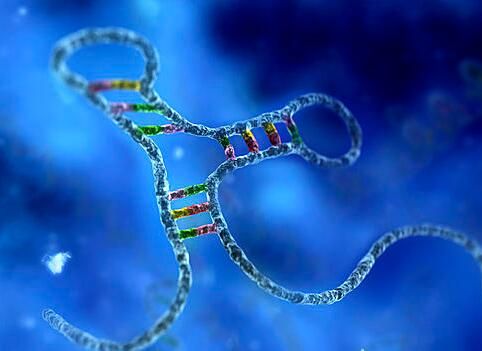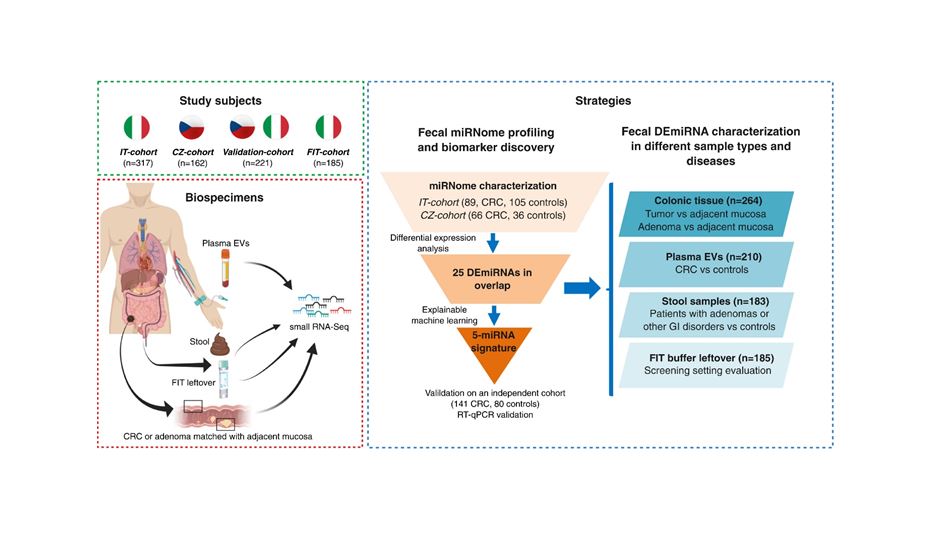In this study, published in the journal Gastroenterology, IIGM researchers identified, in two independent cohorts, five miRNAs that can accurately classify patients with colorectal cancer (CRC) compared with healthy subjects.
Current screening programs for the noninvasive detection of colorectal cancer (CRC) are based on fecal tests with limited accuracy especially for early malignancies or precancerous lesions (polyps and adenomas). Evaluating microRNA (miRNA) profiles in stool could improve the screening strategy for this type of tumor.
The Research unit “Genetic and molecular epidemiology” at IIGM/IRCCS Candiolo, coordinated by Dr Naccarati at IIGM studies from several years the whole miRNome in stool in healthy controls and patients with polyps or CRC.
In the frame of an international collaboration involving the departments of Clinical and Biological sciences (Dr Giulio Ferrero) and Computer Science (Prof. Francesca Cordero) from the University of Turin, the Academy of Sciences of the Czech Republic (Prof Pavel Vodicka) and the Masarik University (Prof Eva Budinska) in Brno, the group of Dr Naccarati published the results of the research in a paper entitled “A Fecal MicroRNA Signature by Small RNA Sequencing Accurately Distinguishes Colorectal Cancers: Results From a Multicenter Study” published in the prestigious journal “Gastroenterology”.
With an ad hoc machine learning method and the sequencing of over a thousand samples, Dr Naccarati and collaborators identified in 2 independent cohorts 5 miRNAs that could accurately classify CRC patients from control individuals. The signature was validated in a third set of CRC patients and controls and assayed in fecal immunochemical test leftover samples from the national CRC screening program. This evidence opens new perspectives for the use of molecular signatures on a large scale, in parallel with the most common methods used for the early prevention of CRC.
The investigation of the whole miRNome in different cohorts offers a comprehensive overview of fecal microRNA profiles both in the general population and in subjects with cancerous and precancerous lesions, providing the possibility to pinpoint those signals that could improve screening accuracy. The study confirmed that microRNAs, whose expression is altered in CRC, are detectable in faeces and provided new hypotheses on the role of these molecules when released into the intestinal lumen in physiological and pathological conditions. Given the high heterogeneity of both CRC and precancerous lesions, further large-scale investigations are currently underway, in particular to optimize the analysis of miRNAs in samples from colorectal cancer screening.

